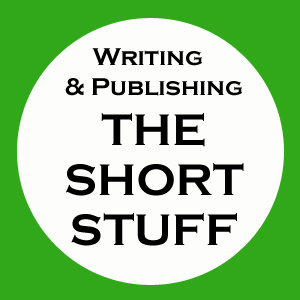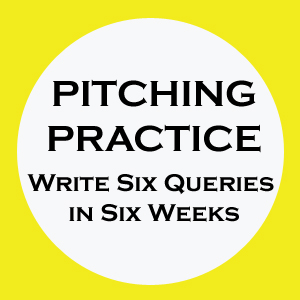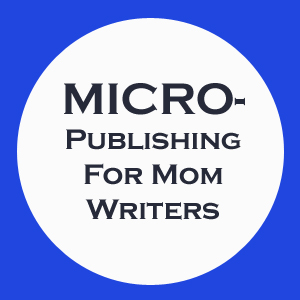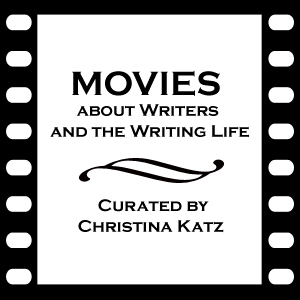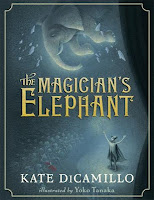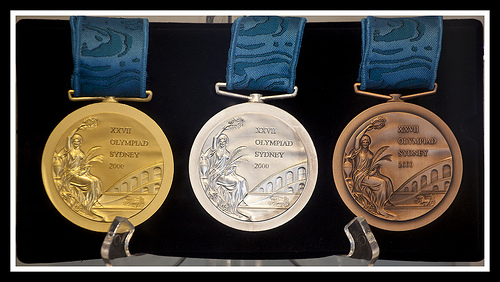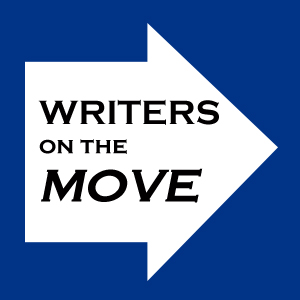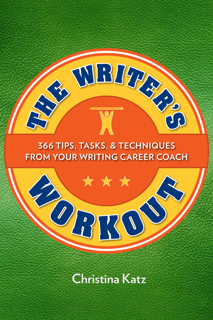 I got up early and was writing about self-expression for my monthly e-zine yesterday. Then afterwards came across a blog post by Dan Blank that talked about voice, in which I was quoted. Apparently great minds think alike. Thanks, Dan.
I got up early and was writing about self-expression for my monthly e-zine yesterday. Then afterwards came across a blog post by Dan Blank that talked about voice, in which I was quoted. Apparently great minds think alike. Thanks, Dan.
I have talked about voice a lot in my work because it seems to be an area where writers struggle needlessly. I’m digging back into things I’ve written in the past, here, and breaking my understanding of voice down here.
See the round up at the end of this post of past writings about voice for further reading.
Voice is a big topic for writers. What would you like to add? Let me know what you think!
What is voice?
There are many different kinds of voice. Writers often refer to voice as a technical term, as in, “Wow. Her voice was really coming through loud and clear in that essay she wrote about losing her father.”
John Schultz, founder of The Story Workshop Method taught at Columbia College Chicago explains voice like this in his book, Writing From Start To Finish:
Voice is the articulation of all perceptions in verbal expression, written and oral, including the so-called nonverbal which we want to get into writing too. Voice is the expression of the whole person, an extension of speech, an extension of the body.
When writers are talking about voice as it relates to other writers, what they are typically talking about is a strong storytelling voice. I wrote about the importance of a strong storyteller’s voice the other day. However fiction and narrative nonfiction writes are not the only folks who have and use voice. Every type of writer uses voice. In fact, every person has a unique and distinct voice, whether that voice changes from project to project or not.
There is a difference between your storytelling voice and your natural voice. The main goal of a storytelling voice is to serve the story, whatever the story may be. The “story” may be a poem, your bio, a blog post, or a 600-page novel. It doesn’t matter, in this case, what you are writing. Voice upholds the artful communication of whatever you wish to communicate as the storyteller.
You are always the storyteller and you always control the story and the voice that serves the story.
But what about voice in other aspects of my career?
In The Writer’s Workout, I talk about voice in your career and the evolution of your career voice quite a bit.
There is an art to platform building just like there is an art to writing, selling, specializing, and continuing to evolve as a creative businessperson. See your platform as a lifelong creation that grows and evolves alongside your art. You have to keep it fresh for readers and for you. ~ page 301 of TWW, “Strut Your Social Side”
Every person has a unique and distinct voice, whether that voice changes from project to project or not. So why not flex yours?
Let’s say, you are a nonfiction writer and you write mostly narrative nonfiction in the same voice as your usual, everyday voice. Perhaps you also use your voice to communicate directly with your readers, because let’s face it, we are living in an interactive age.
Should you put on a false voice to entertain your readers or should you just, as they say, be yourself and let it be enough?
I think you should be yourself and here is why. You have a lot of important jobs as a writer, including writing, selling, self-promotion, specializing, platform building, professional development, and self-publishing…just to name a few.
So, imagine if you had three books in print and each one required putting on a different voice for readers. I feel tired just thinking about that possibility, don’t you? However, each book could have a different voice and you could have one and you would save yourself a ton of energy.
I think we can all agree that every writers needs to preserve a modicum of energy to uphold our most valuable career asset: evolving as a writer. So, I would encourage you to find your natural voice that expresses what you have to say about all of your writing thus far and let that voice evolve as you continue to expand your body of work.
I’m pretty sure where you can find this voice because it’s the one you woke up with this morning, even if it didn’t kick in until after your second cup of coffee. You were born with a natural voice. And the world needs to hear yours, not some phoney, baloney fabricated voice that someone told you will sell you more books.
Your peers will get sick of a phony voice really fast…and so will your readers.
Why is voice important?
Voice is important because some day you’ll be gone. And the voice you leave behind will become your legacy. Your voice is likely what people will remember about you as a writer.
This reminds me of the Woody Allen movie, Midnight in Paris. I burst out laughing uproariously in the middle of the movie theater while watching this movie (and I have laughed out loud every time I’ve watched it on DVD since).
It’s the Hemingway character in the movie who slays me. He speaks his lines in the film just as Hemingway wrote. Why is this so funny? It’s funny because Hemingway’s writing voice was so far removed from his natural speaking voice. His writing voice was far removed from any natural speaking voice. So when the actor delivers Hemingway’s lines in Hemingway’s writing voice, result is immediately absurd.
But Hemingway wrote like that because he was trying to create art out of words, right?
Well, I prefer Faulkner. “Caddy smelled like leaves.”
So Hemingway’s legacy is rather lost on me. Unless you want to see me laugh my head off. But I will never forget reading, The Sound and the Fury.
Your voice is either memorable or it isn’t. So, when you are gone, voice is what you leave behind echoing in readers’ minds…or not. Make sure you write your words in the voice you want to leave behind.
Who is voice for?
Voice is for synergy. So it’s by you for others. Some might say that voice comes through you. I would probably agree.
Voice is the glue that connects what you say and how you say it and the way you say everything and what listeners and viewers and readers hear. Voice lingers and keeps the bridge open between you and your readers.
So voice is for others from or through you but it serves something greater. Your voice serves the whole. And this is why writers lift their voice and exaggerate their voice and dramatize their voice. Because your voice should be reaching out to connect with listeners.
Voice is powerful. Use yours for the greater good.
Which voice should I use when?
Cultivate the ability to know which voice to use without any ego or affect getting in the way.
In other words, just roll with it. Roll with voice in your writing. Roll with voice in your speaking, blogging, drafting–whatever you do all day. Just. Roll. With. It.
You should play with your voice as you write along or you may start to bore yourself and then us.
And boredom is just bad news, so don’t let it happen to you or anyone else. The worst thing that can happen to your voice in the Internet Age is that you are so busy chasing after bright and shiny things that you neglect yours. Or begin to think that it has been replaced by Google or Amazon.
Voice has never been more important. Neglect yours at your own peril.
When should I amp up my voice and when should I hold back?
You are going to learn by doing on this one. I was at a conference lately, speaking to a couple of hundred people and I found myself becoming rather confrontational whenever I said brought up difficult assignments for the group. In other words, instead of being apologetic about suggesting hard work, as I once was, I just put it out there like you’re going to do this and you’re going to like it. Or at least learn to like it.
I never would have spoken that way a few years ago. I felt so much like the messenger who was about to be shot that I was constantly apologizing. But I would try and play that position off in a humorous way.
You might think that I might have alienated folks this last time. But you know what? They loved it. And they also liked it, in the past, when I was apologetic. It was a whole different time even a year ago.
New day. New voice. This should be your mantra.
The roots of what I was saying go back many years in my body of work. But that doesn’t mean I always have to say everything the exact same way. When I say the same thing I have always said in a new context, it becomes new.
So voice is effected by not just what you say but also how you say it and in what context. I would not likely use either of those same tones here in my blog. Because they would not help me communicate better.
If you want to know how to use your voice, consider who you are speaking to and your intended results. Then use your voice to uphold your mission.
Where can I find good examples of voice in action?
Gosh, I hate to overplay the Woody Allen card, but I am really big fan. Have you ever watched a Woody Allen film and noticed that sometimes the character just can’t deliver Woody’s lines the way others can? I have noticed it big time.
Whereas an Owen Wilson or a Jesse Eisenberg are perfect delivering the Woody Allen voice, other actors just seem wrong, wrong, wrong. I guess they simply can’t or won’t channel Woody. However, channeling Woody’s voice is typically what is being asked of a lead character in a Woody Allen film.
And then, of course, there are others who are so good at making the voice their own, like John Cusak in Bullets over Broadway or Diane Keaton in Annie Hall. When the actor transcends Allen’s voice and creates his or her own, the results are just magic.
Let’s find an even better example, though, for writers.
Here is Cheryl Strayed’s voice in her recent memoir, Wild:
I looked at the padded envelope. It was from my friend Laura in Minneapolis. I opened the envelope and pulled its contents out: a letter folded around a necklace she’d made for me in honor of my new name. STRAYED it said in blocky silver letters on a ball-link chain. At first glance, it looked like it said STARVED because the Y was slightly different than all of the other letters—fatter and squatter and cast from a different mold, and my mind scrambled the letters into a familiar word.
Here is Cheryl Strayed’s voice in a recent interview I did with her for Writer’s Digest magazine.
Your recent wave of publicity is almost unprecedented. Was it all planned?
I suppose it looks like one big great wave that happened all at once. But the experience itself is incremental. It started with writing the book, and it ended with people liking it enough to say to others, “You’ve got to read this.” That’s all that matters to me. Everything good that has happened for Wild (and “Dear Sugar”) can be traced back to the fact that I wrote something I would have written regardless of what sort of splash it did or didn’t make. That doesn’t mean I don’t work hard to help my writing find an audience—I do. But that promotional work has to rise from an authentic place or it’s going to fail.
Here is Cheryl Strayed’s voice in the FAQs on her website:
How long did it take you to write your first book, Torch?
There are three answers to this question and they are all true: four years, seven years, and thirty-four years. I found it to be both very fun and difficult to write my first book. It takes a tremendous amount of self-discipline, determination, and magical thinking to keep the faith with a project such as novel. What is it anyway, aside from a story you made up while sitting alone in a room? The reason I finished Torch is that I finally came to understand that the only thing worse than having to really, truly write the whole damn thing was having to live with the fact that I didn’t. The day I wrote the final sentence I bawled my head off for an hour.
What do you notice about Strayed’s voice? This is the voice that re-launched the Oprah book club. It sounds pretty authentic to the author on all three counts to me.
Therefore my advice to you, again, is do not come up with a “publicity” voice separate from your natural voice. There is simply no need. Preserve your energy for the creativity that really matters–your writing.
How will my voice evolve over time?
I don’t know. But I know it needs to evolve over time alongside the rest of your career. Otherwise, you’re going to come across as a one-note wonder. And real people are not like commercials on auto replay. Real people evolve.
Do I really need to worry about voice?
I think worry is the wrong word. You do not need to fret over voice. You were born with one, right? You biggest job is more likely to find your voice and start using it consistently.
And you certainly don’t need to concern yourself with the proper voice for projects you have not even started yet and won’t likely start for many years.
You should understand voice. You should remember that you have one. Readers expect you to have one. And they expect it to be yours.
But please don’t manufacture it. Don’t scoop it up like some cheesy, phoney-baloney spiel that undermines your likability and credibility.
We just want you. Is that so much to ask for?
Some of the people I respect the most in the whole wide world are bravely, brazenly natural. It takes guts to be yourself. And you have to know yourself and be yourself to become a great artist.
So let your heart lead. But follow it with your voice. Loud and clear, so we can hear you and understand you.
Past posts on voice:
The Writer’s Voice Vs. Platform Dynamic: Part One
The Writer’s Voice Vs. Platform Dynamic: Part Two
The Writer’s Voice Vs. Platform Dynamic: Part Three
Authors Need A Strong Storyteller’s Voice
In The Writer’s Workout: LINK
Chapter 34: Flex Your Voice (a definition of voice)
Chapter 55: Be Strong & Clear (Avoiding passive voice)
Chapter 97: Be an Original (Find your true voice)
Chapter 116: Up Your Beat (Find your selling voice)
Chapter 128: Rewrite Frequently (Keep your voice in your rewrites)
Chapter 353: Be Wise and Open (Express it all)
From Writer Mama, How To Raise A Writing Career Alongside Your Kids LINK
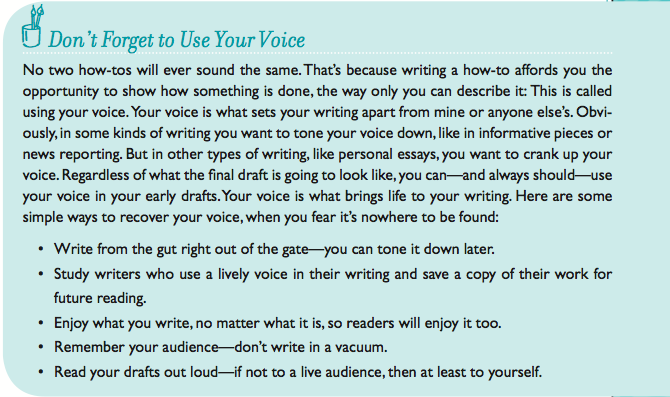
Check out what Porter Anderson has to say about this post and Dan Blank’s post over in his weekly publishing industry redux, Writing on the Ether.
~ Photo by ktylerconk
